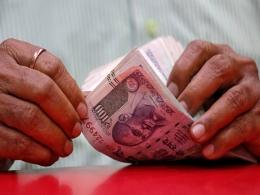A panel set up by the capital markets regulator Securities and Exchange Board of India (SEBI) has proposed tax breaks and direct listing of non-profit organisations to encourage social stock exchanges.
The 15-member group also recommended a reduced minimum corpus and ticket size requirement for social venture funds (SVFs) to help social stock exchanges take off in India. In its 72-page report submitted to SEBI, the group also proposed a Rs 100-crore “capacity building fund” to develop social stock exchanges.
The panel was constituted last September and was headed by Ishaat Hussain, director at SBI Foundation and a Tata Group veteran.
The group also recommended that investors be exempt from paying securities transaction tax (STT) and long-term capital gains tax (LTCG) on their trades and investments.
“A tax on transactions could reduce traded volume and liquidity on the exchange. There is some evidence of this happening in India post the imposition of the STT in 2004,” it said. The LTCG exemption will encourage investors to stay invested for a longer time and provide much-needed long-term capital for social enterprises, it added.
SEBI has sought public comments on the report by June 30.
The committee is advising the regulator and government on creating social stock exchanges (SSE), an initiative proposed by the government in the Union Budget in July.
Finance minister Nirmala Sitharaman had, in the budget, proposed a slew of measures pertaining to India’s capital markets including one that would enable listing of social sector enterprises on the stock exchanges.
The government aims to create an electronic fundraising platform – an SSE – under the capital markets regulator to help list social enterprises and voluntary organisations.
The expert panel has also proposed to allow philanthropists to claim 100% tax exemption for their donations to non-profit social enterprises (NPOs) -- similar to exemptions offered in developed markets such as the US, UK, Japan, Germany, China, and Australia.
It said that, donations to private NPOs can get only 50% tax deduction whereas government entities get 100%. “This creates an artificial distinction between private and government entities doing similar work,” the report said.
The panel also recommended allowing 100% tax exemption to first-time retail investors on their investments in mutual fund units of such entities listed on SSEs, albeit an overall exemption limit of Rs 1 lakh.
The panel stated that the current minimum corpus of Rs 20 crore and minimum ticket size of Rs 1 crore limit the participation of smaller outcome funders in the structures described in the SVF guidelines.
It also recommended that the government clarify on Rule 4 under the Foreign Contribution (Regulation) rules, 2011 to allow foreign entities to invest in SVFs listed on the SSEs.
“Rule 4 prohibits any activity or investment that has an element of risk of appreciation or depreciation of the original investment, linked to market forces, including investment in mutual funds or in shares. This requires a clarification, as it may prevent foreign entities from participating in SVFs.”
An SVF is a category-I Alternative Investment Fund (AIF) that is allowed by SEBI to issue securities or units of social ventures to investors.
The panel recommended widening the use of mainstream funding structures such as the SVFs and mutual funds by allowing such funds to become more than just grants-in, grants- out vehicles for charitable purposes.
“SVFs can also be used for impact bonds, especially where pooling of funders and engagement of multiple NPOs becomes necessary. A separate recommendation addresses this possibility. In addition, CSR funds and foreign funds should be permitted to be deployed towards SVFs,” it said.







